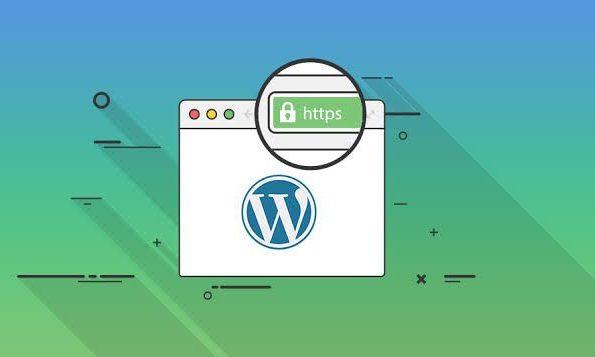Guide to keep yourself and others safe on your site

The pandemic is a reality we all, as a society, are facing and coping with. A lot of people are confined to their homes to maintain social distancing and end up being on the internet for a significant part of their day. When surfing on the internet day in and day out is one of the only options for entertainment, a lot of users end up asking themselves questions like, Am I safe while browsing through multiple sites? How Do I Verify a Website is Legitimate? The answers to such questions should be visible on your website to increase footfall and hence revenue through your online venture. So, follow these tips, and you will not regret:
Answering the question, Is this website legit?
Certain visible factors can help establish the legitimacy of your website with your users or customers. At the top of this list are Cheap SSL Certificates. They are visible to a random user’s eye as a lock and HTTPS on the left corner of the address bar, and most users are aware of its importance and tend to notice in case that lock is missing or Google marks your website as insecure.
Installing a certificate for your website is affordable and accessible. The first tip would be to have an IP address for your website to link the SSL to. The next step would be to go ahead and invest in a certificate and then complete the configuration process to activate it. Upon activation, the certificate will need to be installed on the server, and then you would need to update your website to be able to use the https in its URL, and voila, you are done!
Security Checks, Subscriptions, and Plugins
Security checks are the best way to remain one step ahead of hackers and cyber crooks. There are several security options available in the market, including API security, security subscriptions, and plugin to ensure top-notch security. Regular checks can be beneficial in preemptive identification of threats on your website. Many monitoring services can enable you to automate the process. Vulnerabilities, once identified, can be worked upon to prevent future catastrophes. Security plugins can help protect your site against hackers.
Using Reliable Passwords
The first line of security that hackers face is your password. Making it an easy pass can be harmful to the safety of your website and its data. Be sure to use sufficiently long passwords, including an amalgam of alphabets, both upper and lower case, numerals, and special characters. Make sure never to use passwords that may be information that others can guess like your date of birth, hometown, etc. Your password should not be a legitimated word but a random combination of characters. Enabling 2-factor authentication adds another layer of security in case someone does end up cracking your password.
Pay attention to the host used
Hosting is one of the main factors when selecting a host for your website, do thorough research, and choose a host with germane features and a sound security system in place. Looking out for hosts that have systems in place to deal with Denial of Service attacks and firewalls is the right choice. A good host keeps the website safe and ensures that the business is not at risk even in case of a cyber-attack. Make sure your host has the feature of providing a backup of data on your website, just in case.
Keeping Everything Up to Date
When it comes to security, no stone must be left unturned. Pay attention to all the software, plugin, scripts, and other extensions used by your website. Try to reduce the window between the time when an update for any of them is available and the time when you download and install the update. The shorter that window is, the less likely it is for hackers to take advantage. Each update brings along it updated security patches to safeguard your website and any clumsiness around that can cost you heavily. No vulnerable spot should be left unattended.
Carefully think through Access Levels and Permissions
Depending on the size and expansion of your organization there may be multiple individuals accessing different components of the website with different levels of access. The most effective saying is to give the only minimum required permission to everyone in the organization. The level of access comes with a significant amount of responsibility and hence should be only in the hands of a few trusted individuals. Also, give appropriate file and folder permissions to keep intruders at bay.
Being careful with emails
Human resources can be easily exploited. Hence email links must be opened carefully. Emails from untrusted sources must be dealt with, with utmost caution. Many such emails can be phishing emails through which a hacker can gain complete control of your system in case any of the employees open or download the attachment sent in the mail. Employees must be made aware through training and be prepared to foil for such attempts.
Being aware of Cyber Attacks
According to FinTech news, cyber-attacks in about 80% of the firms have seen a steep rise in the year 2020. With cyber-attacks on the rise, it is essential to know about the different kinds of attacks in the cyber world that impact websites and their data security. Common attacks like cross-site scripting and SQL injection can cause havoc on a website.
It is essential to be aware of the same and how they are caused. In a cross-site scripting attack, a malicious code is implanted inside the system and can be used to manipulate information or steal data. These can be prevented by adding a CSP header as part of the website code which stems from the amount of foreign and contaminated scripts from running.
SQL Injection attacks can mess with the database of the website hindering its smooth running. It can be prevented by setting up queries that are parameterized and secure forms.
In conclusion, it is a known fact that the users today are aware and alert and keeping up with them is what will set you up for success. Customers prioritize their safety when on the internet, and that is precisely the aspect in which your website should be impenetrable. So do follow the above tips and safeguard your data, your users’ information, and maintain a relationship of trust and loyalty with them.
